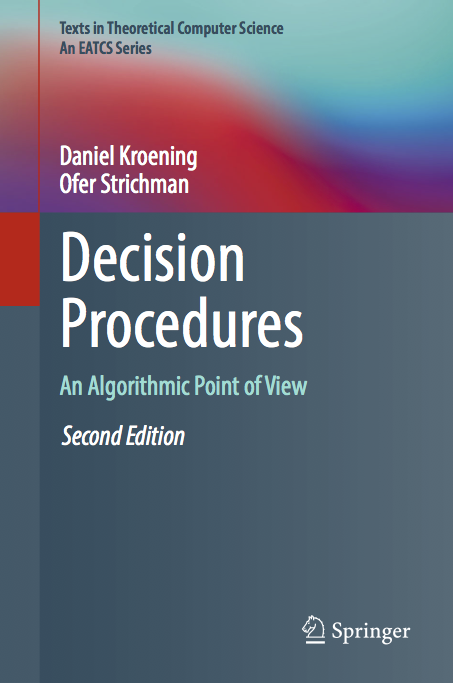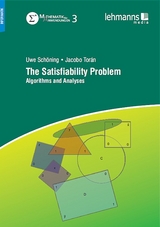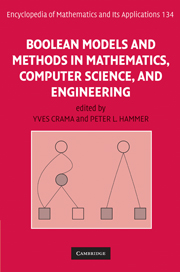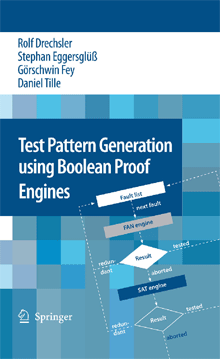CP'2019 - Call For Papers
EXTENDED DEADLINES
Please note that the submission deadlines have been extended. The new deadlines are: Intention to submit paper May 9 (formerly May 3) Abstract and article submission May 15 (formerly May 10) All dates are intended Anywhere on Earth.
The Twenty-Fifth Conference on Principles and Practice of Constraint Programming (CP 2019) will take place in Stamford (CT), USA, September 30 to October 4, 2019. Stamford is one hour away from NYC by train.
The CP conference series concerns all aspects of computing with constraints, including: theory, algorithms, environments, languages, models, systems, and applications.
The CP 2019 programme will include presentations of high-quality scientific papers and tutorials on both theory and applications. Invited talks will describe important topics relevant to the field. The CP programme also welcomes workshops for discussing in-progress work and provides support to students through its doctoral program, which includes a dedicated one day doctoral conference, mentorship by experienced researchers and more.
Tracks
The conference features a main Technical Track, an Application track and additional thematic tracks:
- Computational Sustainability
- Constraints and Biology
- CP, Data science and Machine Learning
- Multi-agent and parallel CP
- Testing and verification
Papers are submitted directly to each track. Submissions that relate not only to CP technology but to constraint solving, NP-hard problem solving and optimization in general, and which are of potential interest to the CP community, are welcome. Each track has a dedicated chair and subcommittee to ensure that reviewers have the relevant domain expertise.
Invited speakers and tutorials
Invited talks
- Ian Davidson : ML and CP
- Nina Narodytska : Logic for Deep Neural Nets
- Bistra Dilkina : ML for CP and Climate change
- Phoebe Vayanos : AI and Optimization for the social good
Tutorials
- Neng-Fa Zhou : Building a Fast CP solver with SAT
- Tomas Werner : Graphical Model, Constraint Satisfaction and Optimization
- Andrei Bulatov : Characterizing tractable constraint languages
- Philippe Laborie: Planning and Scheduling with CP Optimizer
Important dates
All deadlines are AoE.
- 9 May 2019 - Intention to contribute submission deadline
- 15 May 2019 - Abstract and full paper submission deadline
- 17-20 June 2019 - Author response period
- 30 June 2019 - Notification
- 19 July 2019 - Camera-ready Submissions Instructions
Paper submission is via EasyChair (CP 2019). Each submission should be directed to the suitable track.
Length and format
The submissions should be submitted in the form of a PDF file following Springer’s LNCS formatting guidelines. In order to open the conference more widely (e.g., for OR persons), two types of submissions are expected this year:
- full papers: they can use up to 15 pages (references not included) but shorter submissions are also welcome. Submissions exceeding the page limits or improperly formatted will be rejected without review.
- abstracts: they can use a maximum of 2 pages and can cover material which has already been submitted or published in other journals or conferences. The abstracts will not appear in the final LNCS proceedings but will be available on the conference web site and be distributed as an abstract leaflet.
All full papers and those abstracts which should attract a wide audience will be allocated time for presentation during the conference. Other abstracts will be allocated poster space.
Anonymous Submission
To facilitate reviewing management, authors who intend to submit an abstract or a full paper to CP should submit a very short description of the contents and contribution of the final submission, with a maximum of 150 words, before the 3 May 2019.
The final abstract and full paper submission must be done before 10 May 2019. Full papers will go through a double blind reviewing process, meaning that authors and reviewers are anonymous to each other. For this reason, submitted full papers should not contain author names, affiliations, or links to identifying web sites. References should be cited in such a way as not to reveal the authorship of the paper.
Multiple Submission
A given paper must be submitted to exactly one track. When it looks necessary, the Program Chairs may move a submission to another, more suitable track.
At the final submission deadline, any full paper submission that appeared in, is accepted for, or is under review for another peer-reviewed conference or journal must be promptly withdrawn from CP.
Submissions that have appeared at workshops or other meetings of lower status than a conference or only in highly shortened form (e.g., abstracts) can be submitted as full papers.
Proceedings
Accepted full papers (in all tracks) will appear in conference proceedings published by Springer in the Lecture Notes in Computer Science (LNCS) series. The proceedings will be available at the time of the conference.
Authors of certain outstanding accepted full papers will be offered two publication options: (a) publication in the conference proceedings and, if desired, submission of an extended version to a special issue of Journal of Artificial Intelligence Research; (b) publication of an abstract in the conference proceedings, and publication of an extended version of the paper on the conference web site and in Constraints after the conference.
Other Information
Questions about the paper submission process may be addressed to the Program Chairs Simon de Givry and Thomas Schiex.










